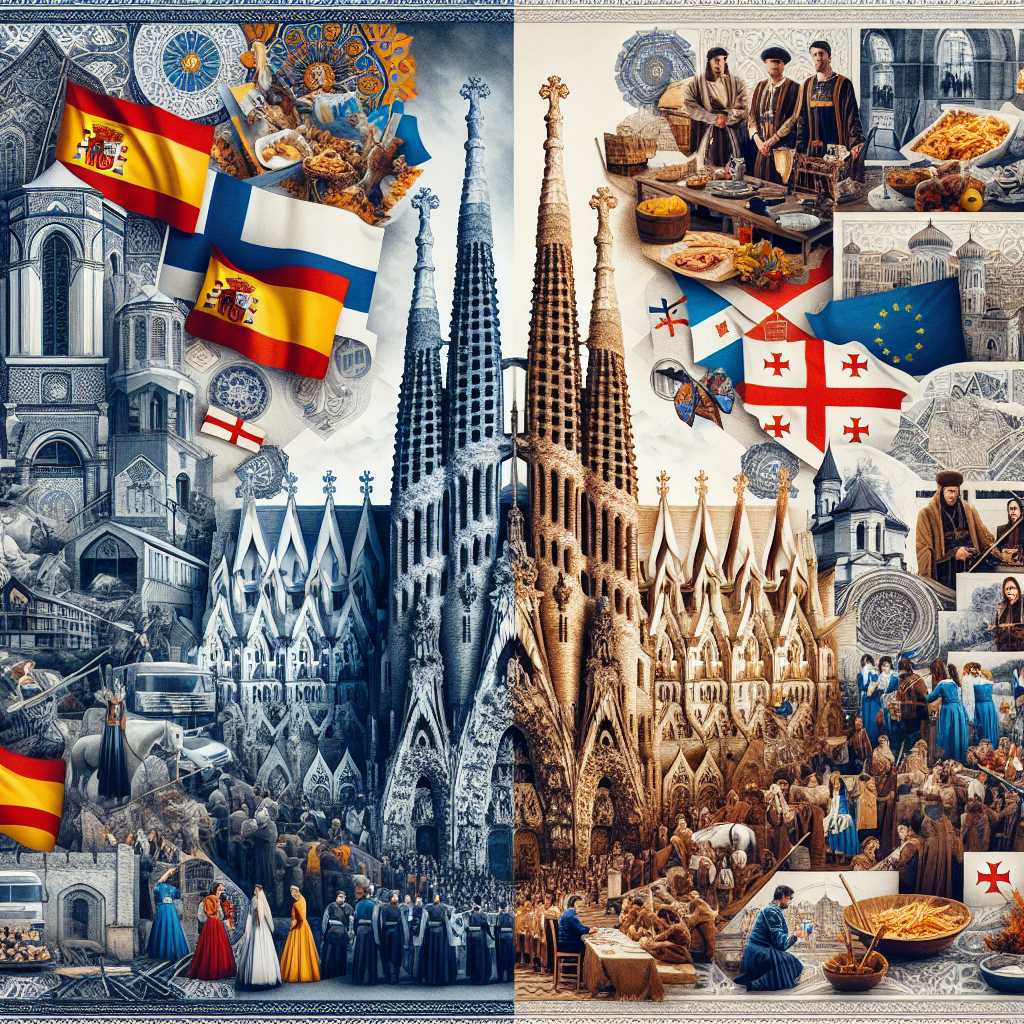Spain vs Georgia: A Comparative Perspective on Two Diverse Nations
Europe boasts diversity in every aspect, from culture to economics, and contrast is vivid when examining nations such as Spain and Georgia. Despite being located on the same continent, these two countries offer stark differences as well as surprising similarities in their historical development, culture, economy, and place in international relations.
Historical Context and Cultural Landscape
Spain, a country with profound historical roots dating back to the Roman times, passed through various stages including the Visigothic Kingdom, the Islamic rule, the Reconquista, and the Spanish Empire. It is known for its vibrant culture that includes famous festivities like La Tomatina and the Running of the Bulls. The influence of history is imprinted in the Spanish architecture with exemplars like the Alhambra and Sagrada Familia.
In contrast, Georgia has its history intertwined with both European and Asian influences due to its location at the crossroads of East and West. With origins tracing back to the ancient kingdoms of Colchis and Iberia, Georgia went through periods of Persian and Ottoman rule before becoming part of the Russian Empire and later the Soviet Union until its independence in 1991. Distinct for its hospitable people and rich traditions, Georgian culture is also notable for its polyphonic music and elaborate feasts known as supras.
Despite their different trajectories, both nations pride themselves on their unique cultural heritages which have been recognized by UNESCO among others.
Economic Outlook and Development
The Spanish economy is the larger of the two, having been historically fueled by agriculture before embracing industrialization. Today, Spain’s economy is diversified across sectors including manufacturing, services, tourism, and technology. The nation was hit hard by the 2008 financial crisis but has been on a path to recovery and growth.
Georgia’s economy has undergone significant transformation since its independence, moving from an agrarian base to more diverse economic activities including mining, winemaking, and tourism. Following economic reforms after the Rose Revolution in 2003, Georgia has tackled corruption and improved its business climate resulting in substantial foreign investments and steady economic growth despite regional challenges.
Both economies operate within larger regional frameworks – Spain within the European Union and Eurozone, while Georgia maintains trade relations with both EU countries and neighboring Eurasian nations.
Political Systems and International Relations
Politically, both Spain and Georgia are defined by their own brands of democratic governance; however, their political histories differ dramatically. Spain’s parliamentary monarchy stabilized following the return to democracy after the death of Franco in 1975. It has played an active role within the EU and international organizations such as NATO.
Georgia’s democratic journey post-1991 has been marred by volatility with a succession of revolutions and strained relations with Russia culminating in a five-day war in 2008 over disputed territories. Aspiring to join both NATO and the EU, Georgia continues to align itself more with Western institutions while facing political challenges both internally and along its borders.
Understanding each country’s political narrative is essential as it gives insight into their respective stances on issues like human rights, migration policies, international law, which have significant global implications.
Notes
In conclusion, while Spain and Georgia differ substantially concerning size, power, culture, economy, and politics they share common experiences as European countries navigating complex histories while striving for growth within increasingly interconnected global systems. Recognition of their differences is as important as acknowledging shared human values seamlessly intertwined within both societies’ fabrics.

